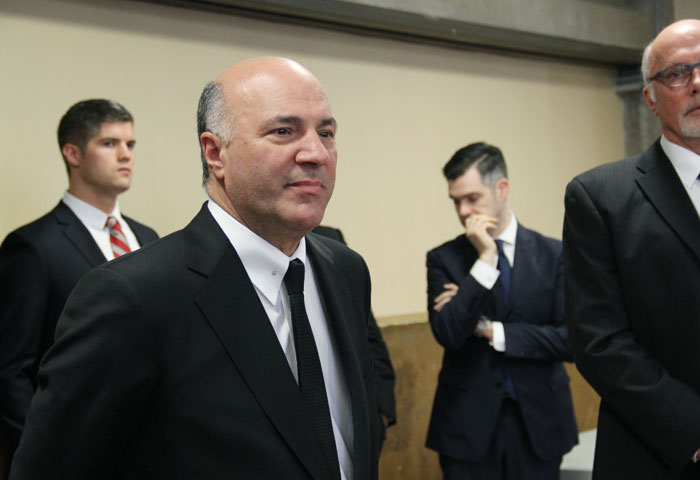Candidate for leadership of the Conservative Party of Canada Kevin O’Leary came to McGill University on Feb. 13. He elaborated on his platform for jobs and social inclusivity in an exclusive interview with The McGill Tribune, as well as in a speech at the Shatner Building.
Of foremost importance to O’Leary is the economy. He was particularly critical of Canada’s gross domestic product (GDP) growth rate, which has fallen below three per cent, and felt that Canada has the capacity to improve.
“We have to start thinking about making this country competitive with the rest of the world because Canada is the richest country on earth in terms of resources, and water, and minerals, and timber, and energy,” O’Leary said. “In order to maintain the contract that we have as Canadians with each other, including funding the arts and all the social programs [which] support the poor and immigrants that need to get started here, we either grow at three per cent or you are going to be living in a deficit for 38 years.”
O’Leary argued that Canada must open itself to international investment to enjoy economic benefits. Given Donald Trump’s intentions to cut carbon taxes, O’Leary was dismayed that Prime Minister Trudeau has not followed suit to keep Canada competitive.
“If you compare capital flowing around the world, where does it want to rest itself to invest? If your taxes are too high, if your regulatory environment is too punitive, if you have carbon tax when none of your competitors do, capital tends to follow the path of least resistance and goes to other countries, which is what’s happening now. That’s the problem, and we need to get ourselves in synch,” O’Leary said.
Specifically, O’Leary hopes to attract industries from Asia to Canada and to create jobs by developing fracking in Nova Scotia.
O’Leary also emphasized engaging with youth voters, hoping to provide them with prosperous financial futures.
“My job as Prime Minister is to provide you an environment where you can choose your path and have a high probability of success,” O’Leary said. “[Youth] unemployment rate’s more like 15 per cent, it’s really failed because there’s no growth. These people need jobs.”
After O’Leary’s speech, in which he reiterated the importance of the economy and millennial voters, McGill students in attendance asked for his opinion on a series of topics, including health care, housing, O’Leary’s personal investments, the environment, inclusivity, and comparisons to Trump. O’Leary also spoke about his childhood living around the world while his mother worked for the International Labor Organization.
“There’re two elements of our educational system that are missing: Tolerance for cultures and religion, and also financial literacy,” O’Leary said. “What someone wears, how they want to live their lives, we should accommodate all of that in this country, and I learned that as a child in Cambodia. What headdress was worn in the street did not define who a person was, it was their style, their culture. We have to accommodate that. That ends up being a competitive weapon for this country.”
Another clarification that students sought was distinguishment of O’Leary from Trump. O’Leary referenced the fact that his family immigrated to Canada before he was born.
“If we built a wall around Canada, I wouldn’t exist,” O’Leary said. “I wouldn’t be here. So, I do not agree on many of [Trump’s] policies, he’s dealing with other problems in the U.S. that we don’t have here in Canada. We’re going to have a very inclusive economy, a very inclusive country, I don’t care what your race or religion is, you can come here as I did.”
The event was organized by the Conservative Association of McGill, with the President Adam Wilson, U3 Arts, pleased with the turnout of approximately 300 people. Wilson spoke of O’Leary’s inclusive social direction being an appealing draw for young voters.
“I think the fact that he cuts through all the social things that people don’t like the conservatives for [will] attract young people,” Wilson said. “I think that some people don’t like conservative fiscal policy, but a lot of people [who do] won’t vote for the conservatives because there are people in the conservative party who are anti-LGBT or anti-choice.”








